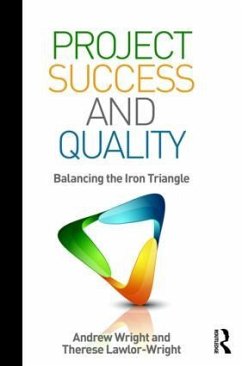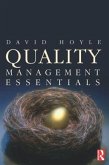Projects are inherently risky, since they involve some level of uncertainty, doing something new in the target environment, but the percentage of projects seen as a success is still disappointingly low, especially for IT projects. The 'Iron Triangle' of time/cost/quality suggests that all three aspects are equal, but with quantitative methods for monitoring project performance, the focus is primarily on managing cost and time.
This book seeks to redress the balance, explaining the rationale and benefits of focusing more on quality (fitness for purpose and conformance to requirements) before detailing a range of tools and techniques to support rebalancing the management of projects, programmes and portfolios.
It shows how managing project quality actively can reduce costs through minimising wastage, and reduce delays through avoiding rework, leading to improved project success rates and customer satisfaction.
This book seeks to redress the balance, explaining the rationale and benefits of focusing more on quality (fitness for purpose and conformance to requirements) before detailing a range of tools and techniques to support rebalancing the management of projects, programmes and portfolios.
It shows how managing project quality actively can reduce costs through minimising wastage, and reduce delays through avoiding rework, leading to improved project success rates and customer satisfaction.









